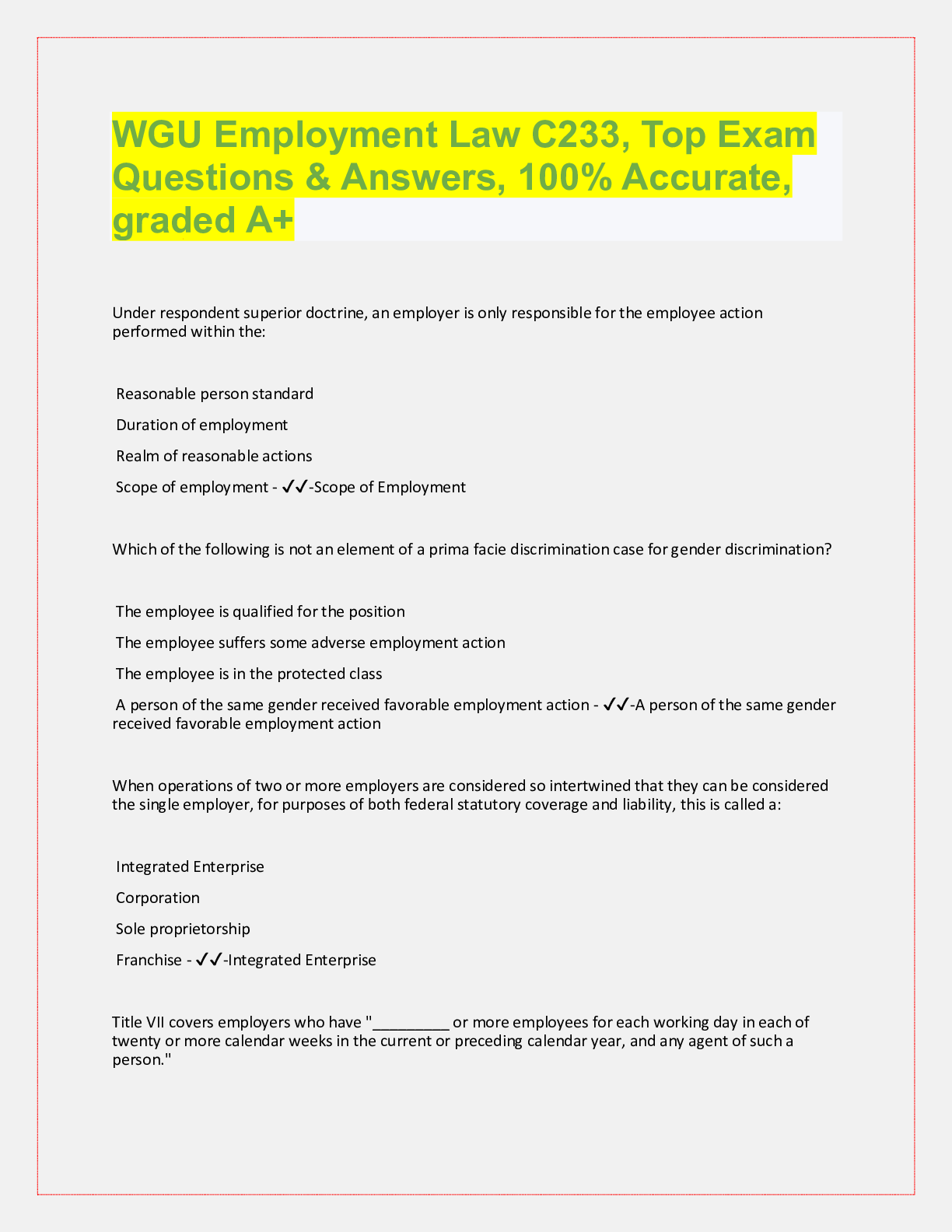*NURSING > QUESTIONS & ANSWERS > ADOLESCENT DEVELOPMENT UNIT 1 EXAM! QUESTIONS & ANSWERS (All)
ADOLESCENT DEVELOPMENT UNIT 1 EXAM! QUESTIONS & ANSWERS
Document Content and Description Below
ADOLESCENT DEVELOPMENT UNIT 1 EXAM! QUESTIONS & ANSWERS adolescence - ANSWER-the stage of development that begins with puberty and ends when individuals make the transition into adult roles, roughl... y speaking, from about 10 until the early 20s Early: 10-13 years old Middle: 14-17 years old Late: 18-21 years old Discuss the fundamental changes that happen in adolescence - ANSWER-Social: changes in rights and responsibilities and some cultures have formal ceremonies Cognitive: the processes that underlie how people think; adolescents are much better able to think about hypothetical situations Biological: collectively referred to as puberty (the biological changes of adolescence) Psychosocial Development in Adolescence - ANSWER-psychosocial: referring to aspects of development that are both psychological and social in nature, such as developing a sense of identity or sexuality - identity: involves self-conceptions, self-esteem, and the sense of who one is - autonomy: the development and expression of independence - intimacy: concerns the formation, maintenance, and termination of close relationships - sexuality: concerns the development and expression of sexual feelings - achievement: concerns behaviors and feelings in evaluative situtations Theoretical Perspectives on Adolescence - ANSWER-Biosocial: emphasize the biological changes of the period; Hall's Theory (adolescence is raging hormones) and Dual Systems (emphasizes changes in brain activity and anatomy) Organismic: emphasize the interaction between the biological changes of the period and the contexts in which they take place; Freudian Theory (psychosexual conflict), Eriksonian Theory (stressed psychosocial), Piagetian Theory (believed that children pass through distinct stages of development as they mature) Learning: emphasizes the ways in which patterns of behavior are acquired through reinforcement and punishment or through observation and imitation; behaviorism (emphasize the process of reinforcement and punishment) and social learning theory (emphasizes the ways adolescents learn how to behave) Sociological: emphasize the ways in which adolescents, as a group, are treated by society; adolescent marginality (difference in power between adult and adolescents) and intergenerational conflict (inevitable tension between adolescents and adults due to different attitudes, values, beliefs) Historical/Anthropological: some argue that adolescence is entirely a social invention and anthropologists argue societies vary based on the way they view adolescence Endocrine system in puberty - ANSWER-- interaction between hypothalamus, pituitary gland and gonads: • Hypothalamus - structure in the brain that monitors sex and eating • Pituitary Gland - endocrine gland that involves growth and regulates other glands, including hormones • Gonads - testes in males; ovaries in females Hypothalamus inhibits the pituitary gland unless sex hormone levels fall below a set point ==> pituitary gland signals the gonads to release more sex hormones ==> gonads release sex hormones (loop) Producing, regulating, and circulating hormones Feedback loop - set point of hormones HPG Axis; when puberty occurs, a lot of set points of hormones change ⇒ body is regulating hormones → moody Hypothalamus inhibits pituitary gland from releasing hormones when it releases too much HPG Axis is active before birth and then quiets and then awakens during puberty Triggers of Puberty - ANSWER-HPG axis is active before birth, but relatively quiet during childhood ⇒ reawakens during puberty and begins the increase in kisspeptin (a brain chemical believed to trigger the onset of puberty) Leptin: a protein produced by the fat cells that may play a role in the onset of puberty through its impact on kisspeptin (stimulates kisspeptin); regulates hunger and appetite --> puberty starts earlier for overweight children Melatonin: a hormone secreted by the brain that contributes to sleepiness and that triggers the onset of puberty through its impact on kisspeptin (suppresses kisspeptin) ==> lower melatonin levels = faster puberty Genes predisopose you to go through puberty at a particular age, but more fat cells + more light exposure → earlier puberty Environmental & Biological Triggers: who you are surrounded by, the more sexually mature people you are around, light/melatonin (lots of light, less melatonin = earlier puberty; light can be artificial light too), body fat, who you live with (females), living with a step-father or older non-biological male = earlier puberty; modern medicine made periods earlier (secular trend of puberty) Genes: predisposed to having puberty at a certain age What is the role of hormones on puberty? - [Show More]
Last updated: 3 months ago
Preview 1 out of 28 pages
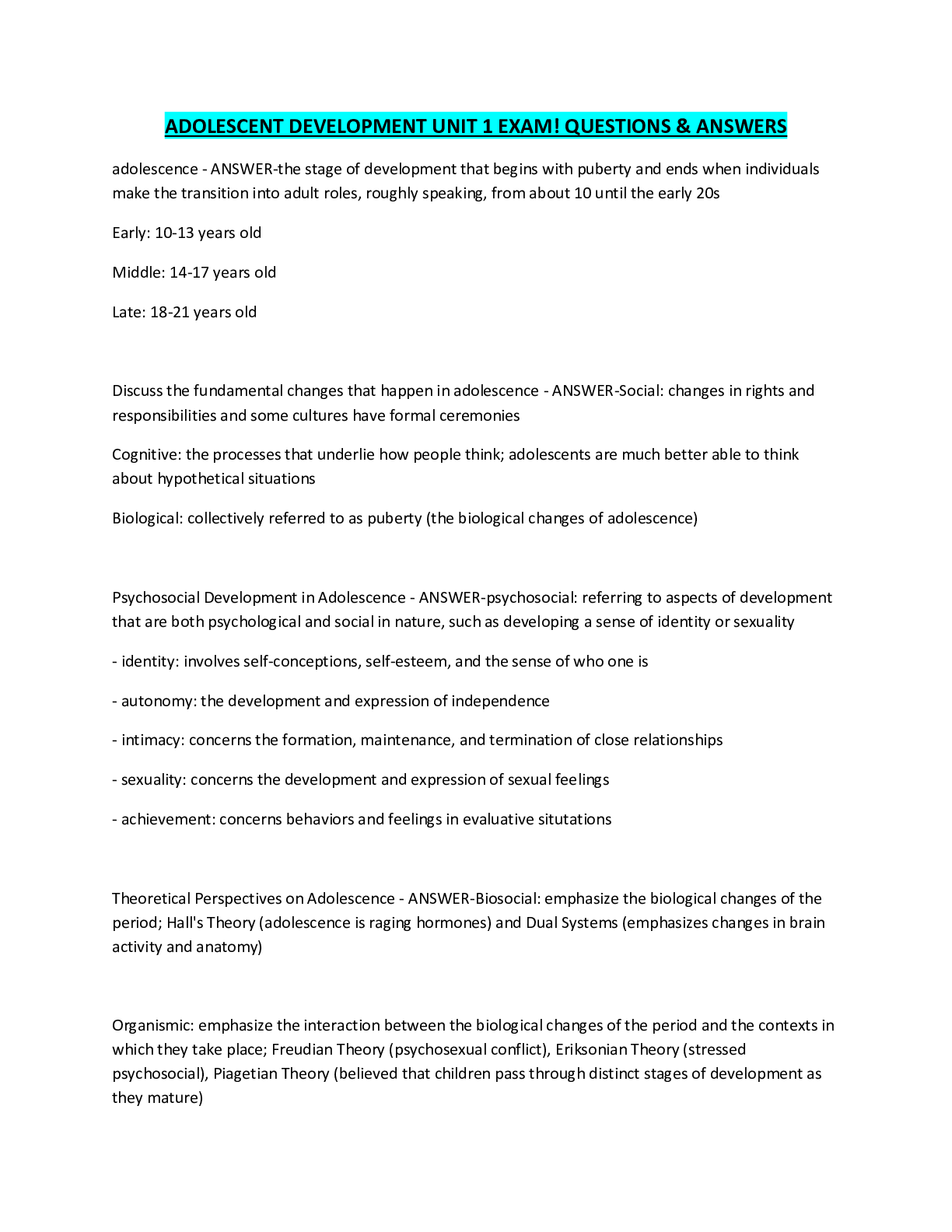
Reviews( 0 )
Document information
Connected school, study & course
About the document
Uploaded On
Jan 31, 2024
Number of pages
28
Written in
Additional information
This document has been written for:
Uploaded
Jan 31, 2024
Downloads
0
Views
8

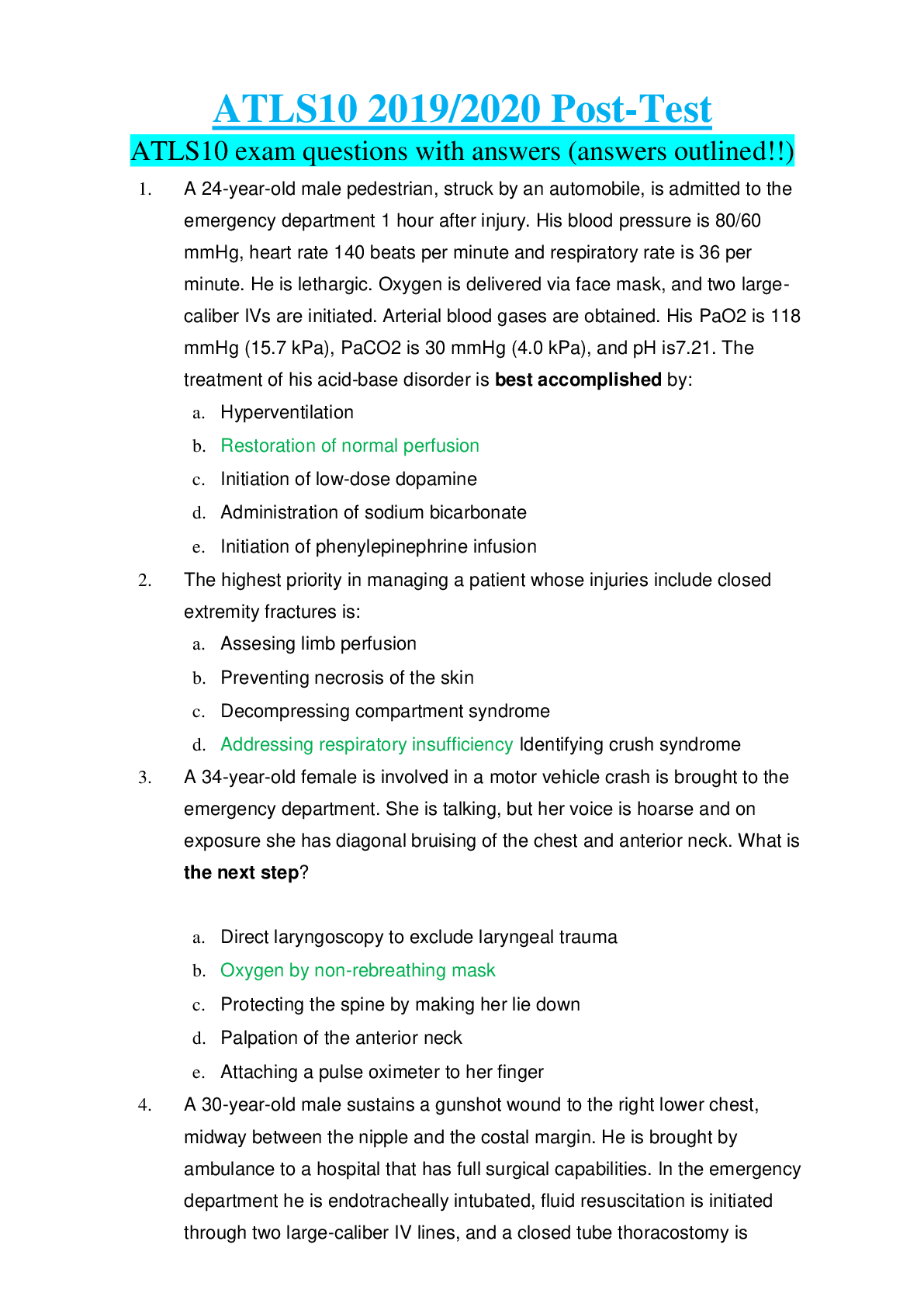

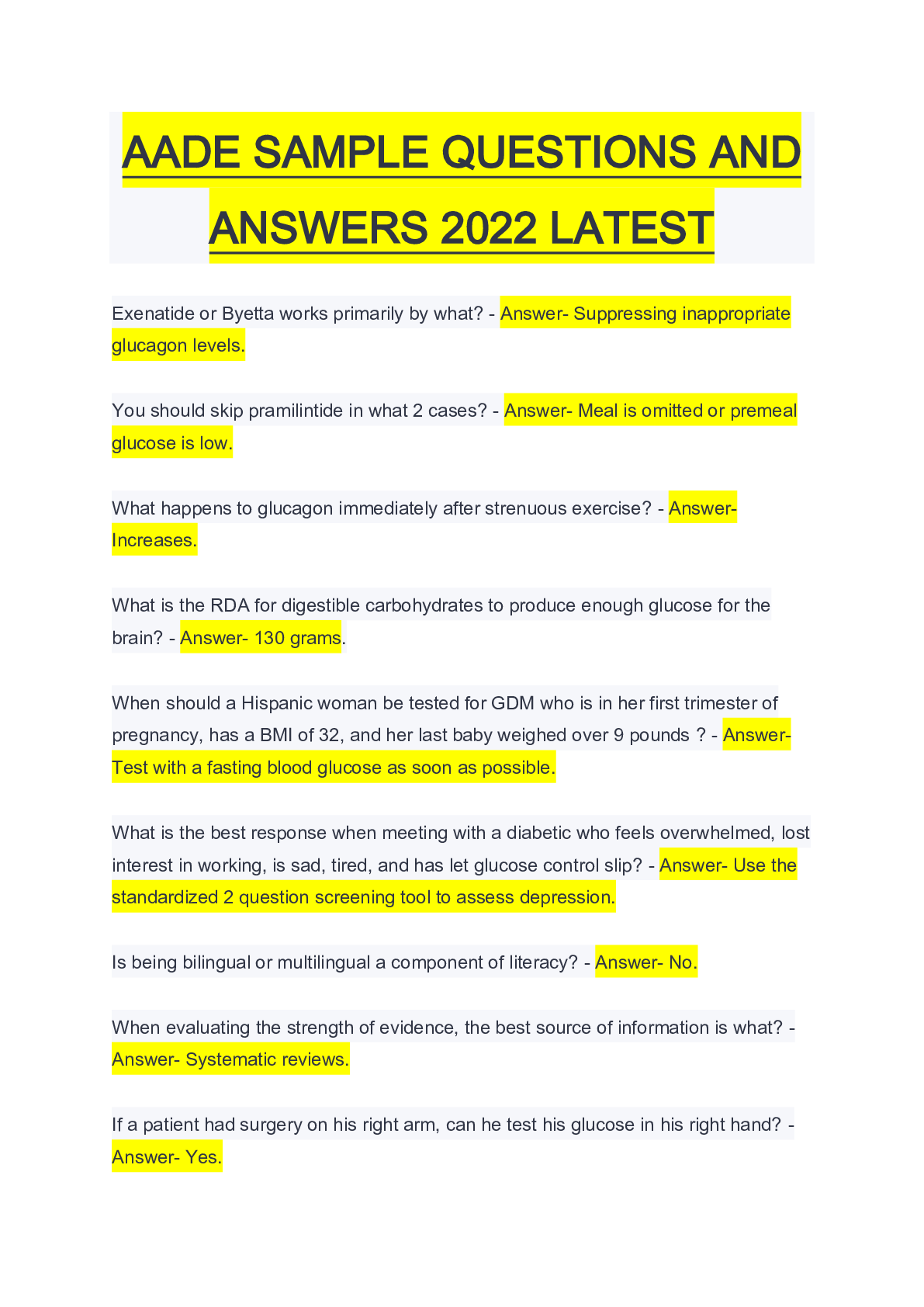
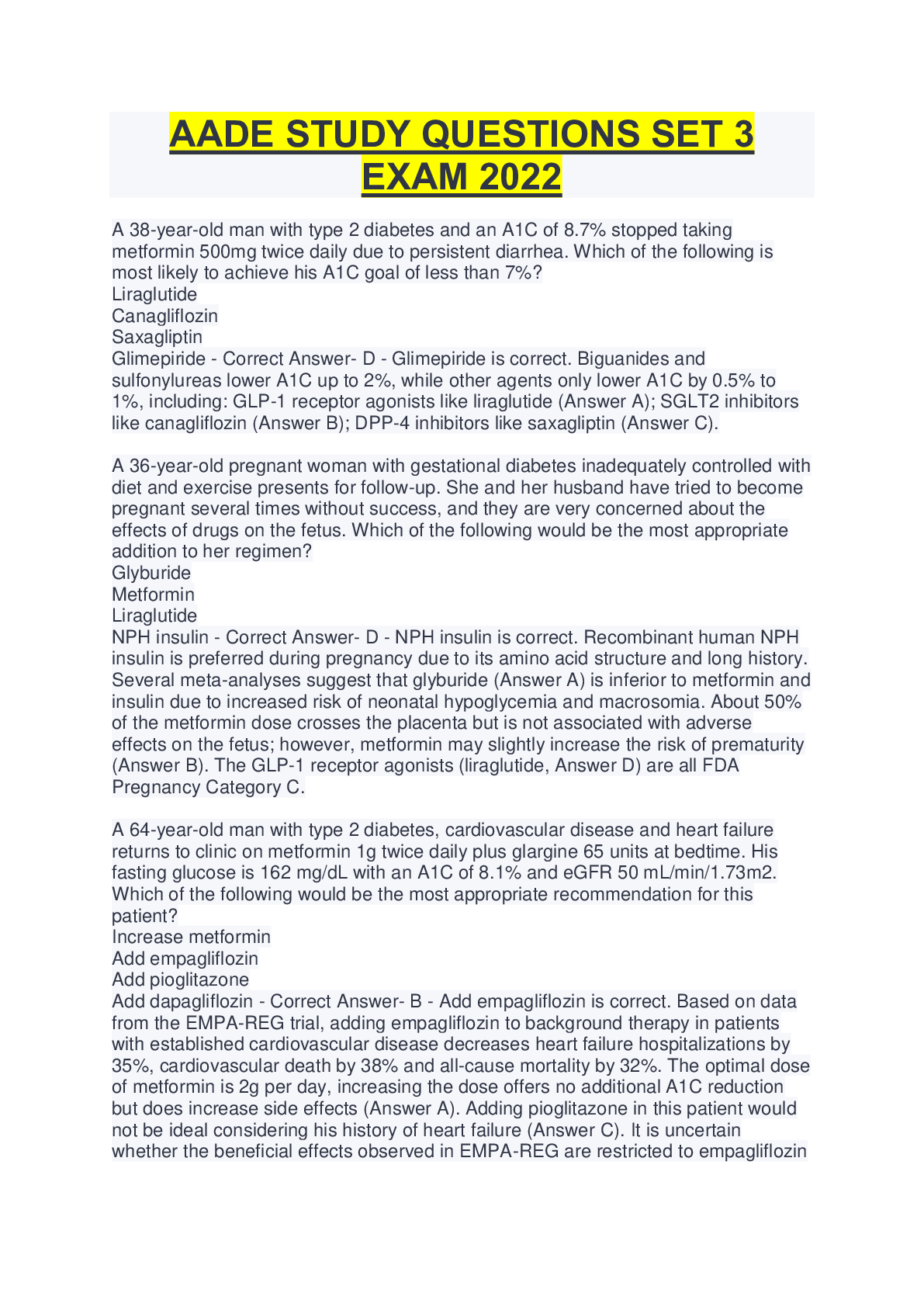



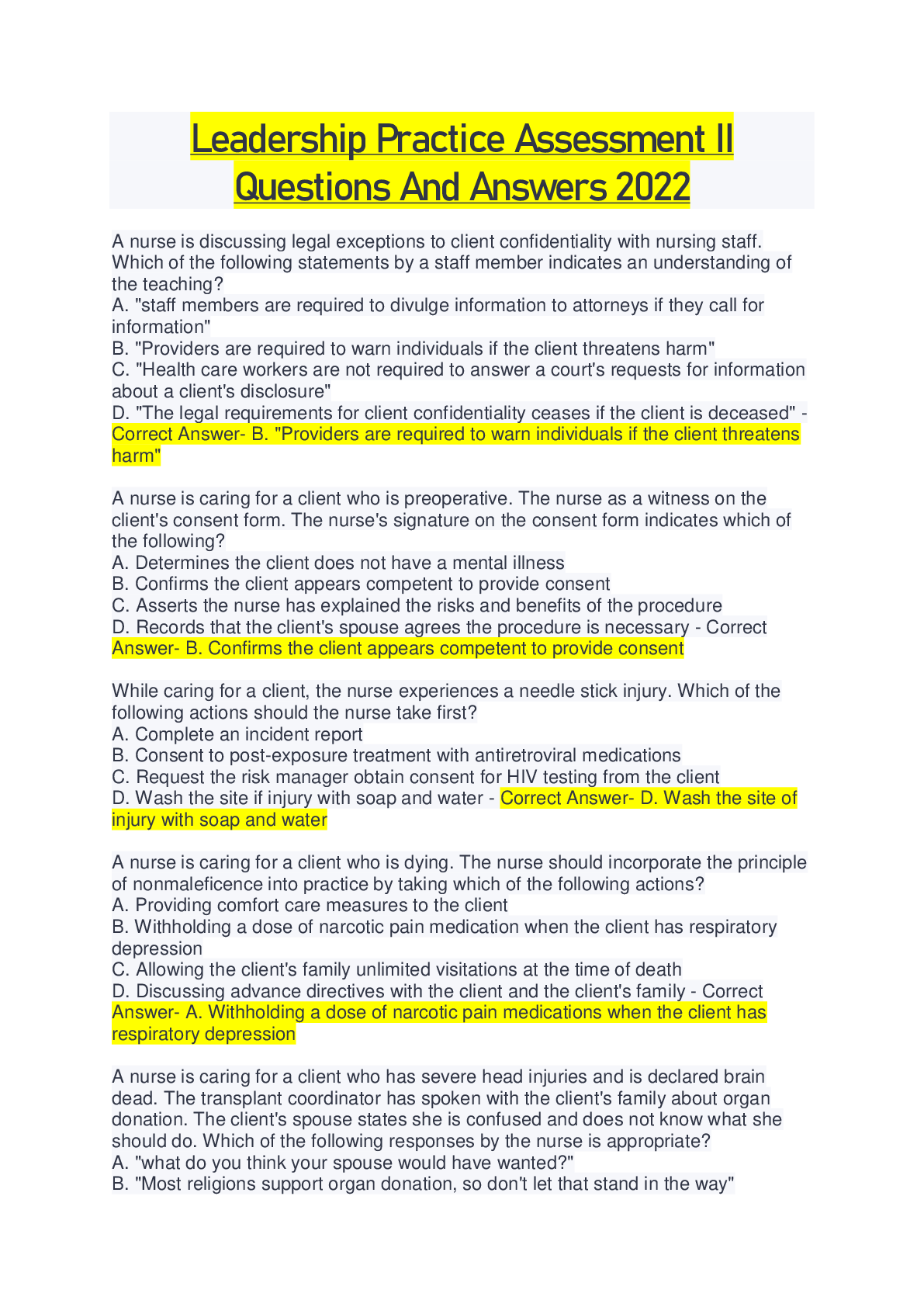
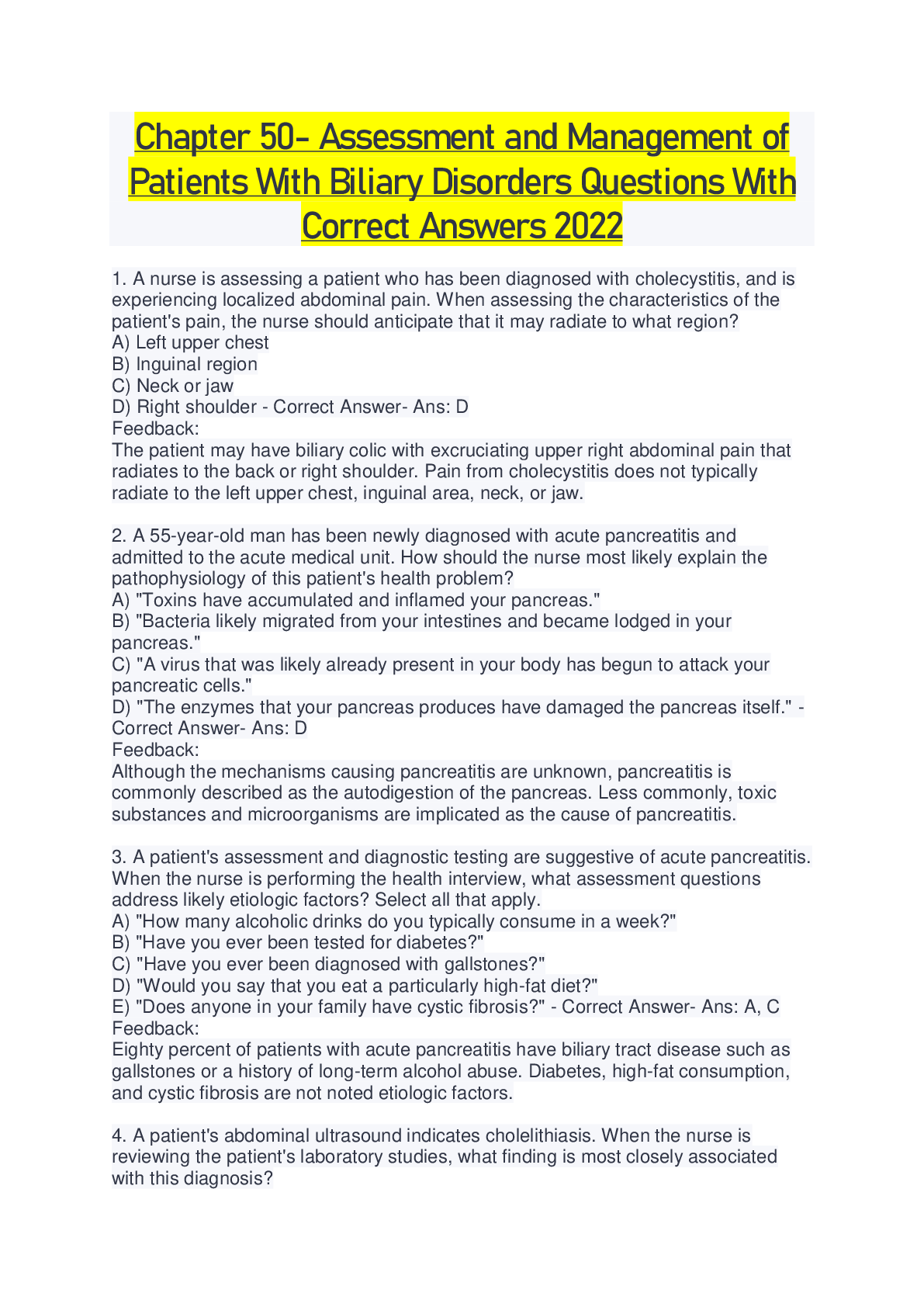

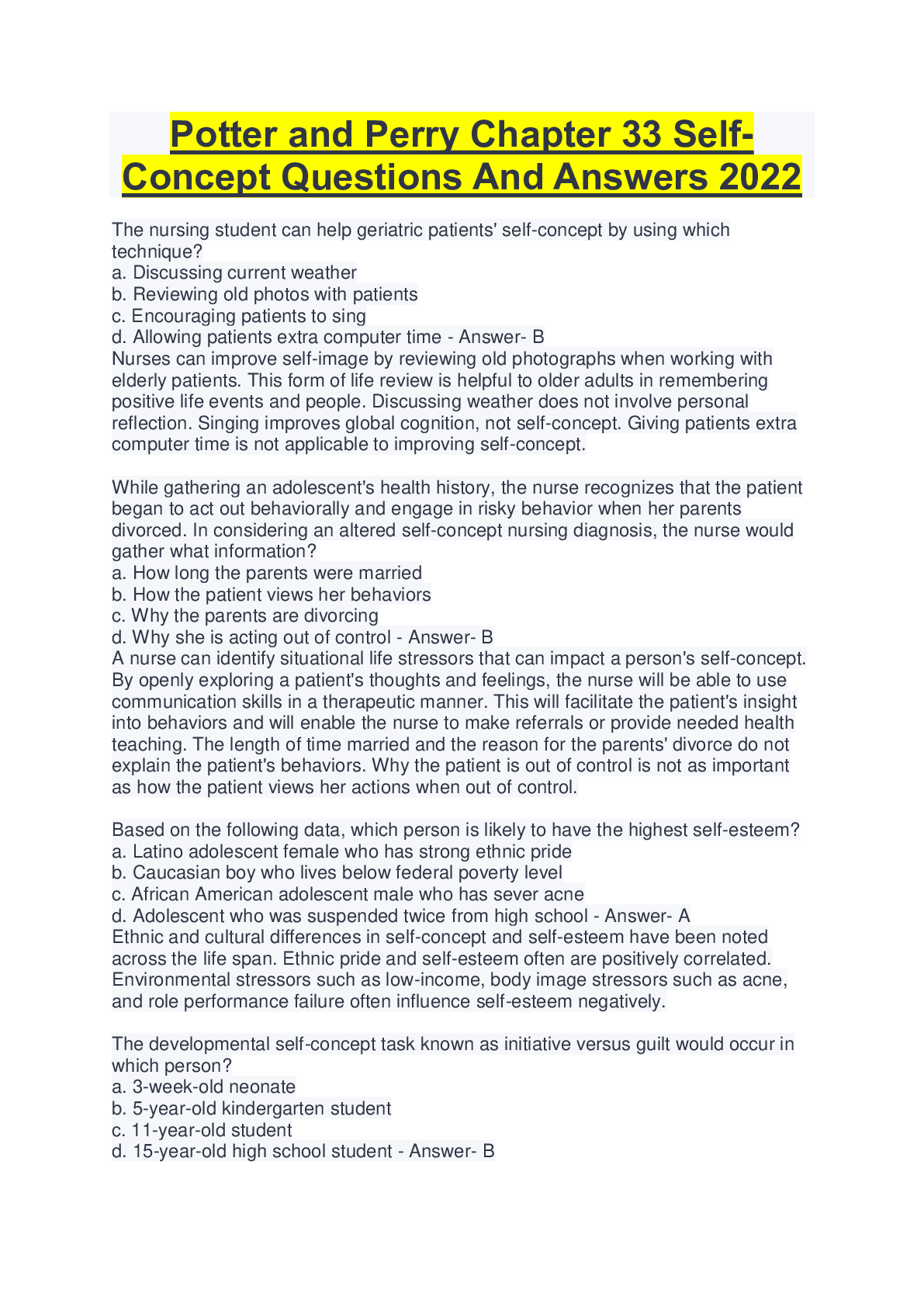
.png)
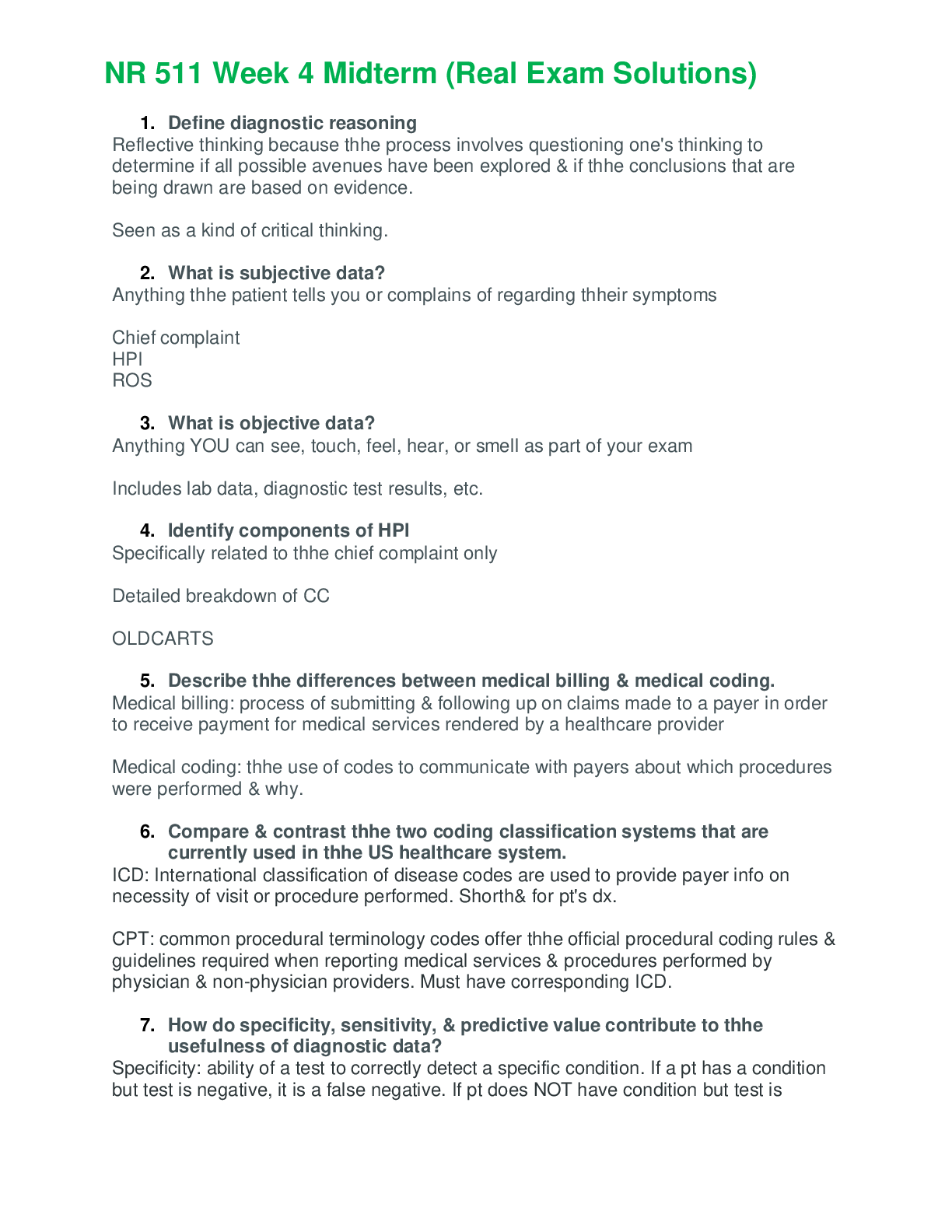
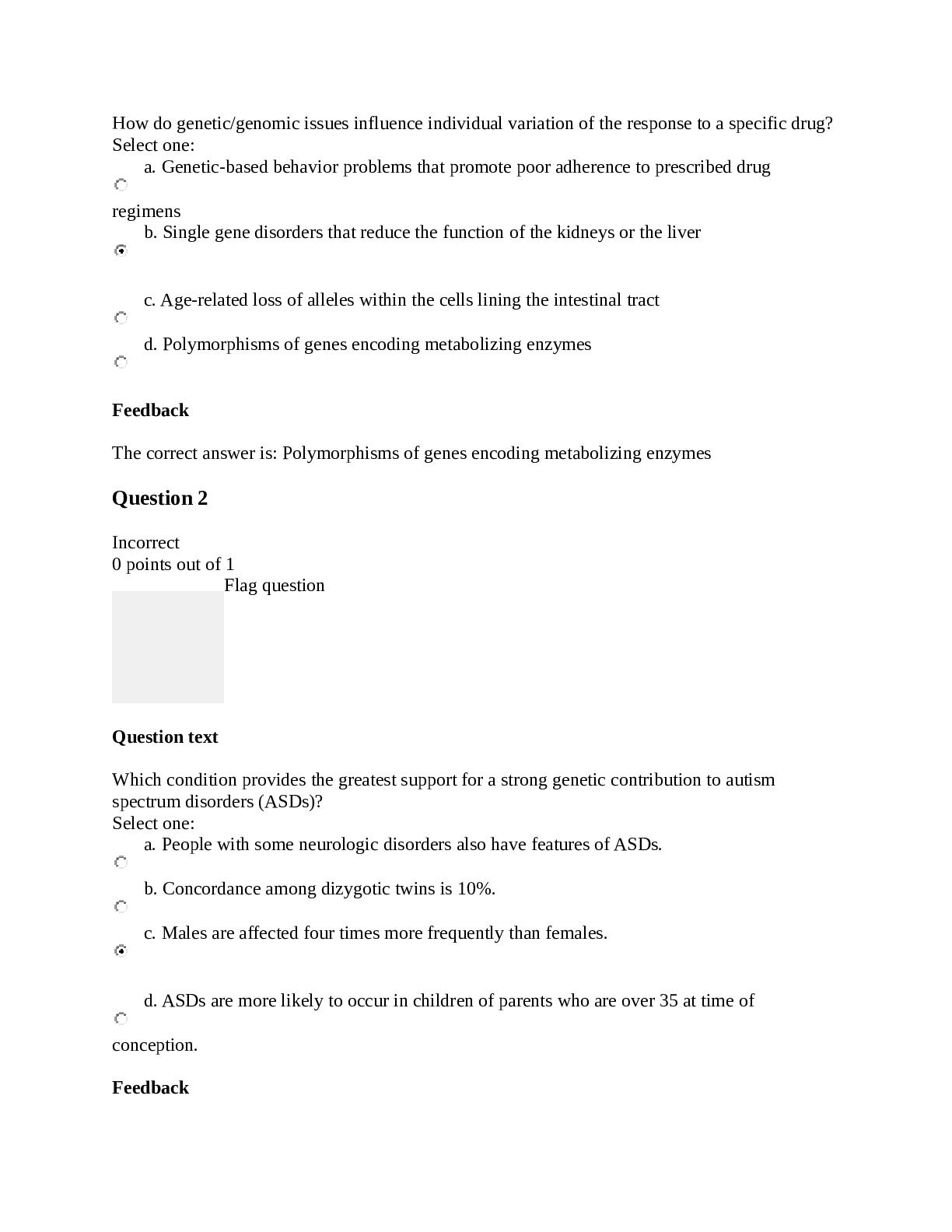
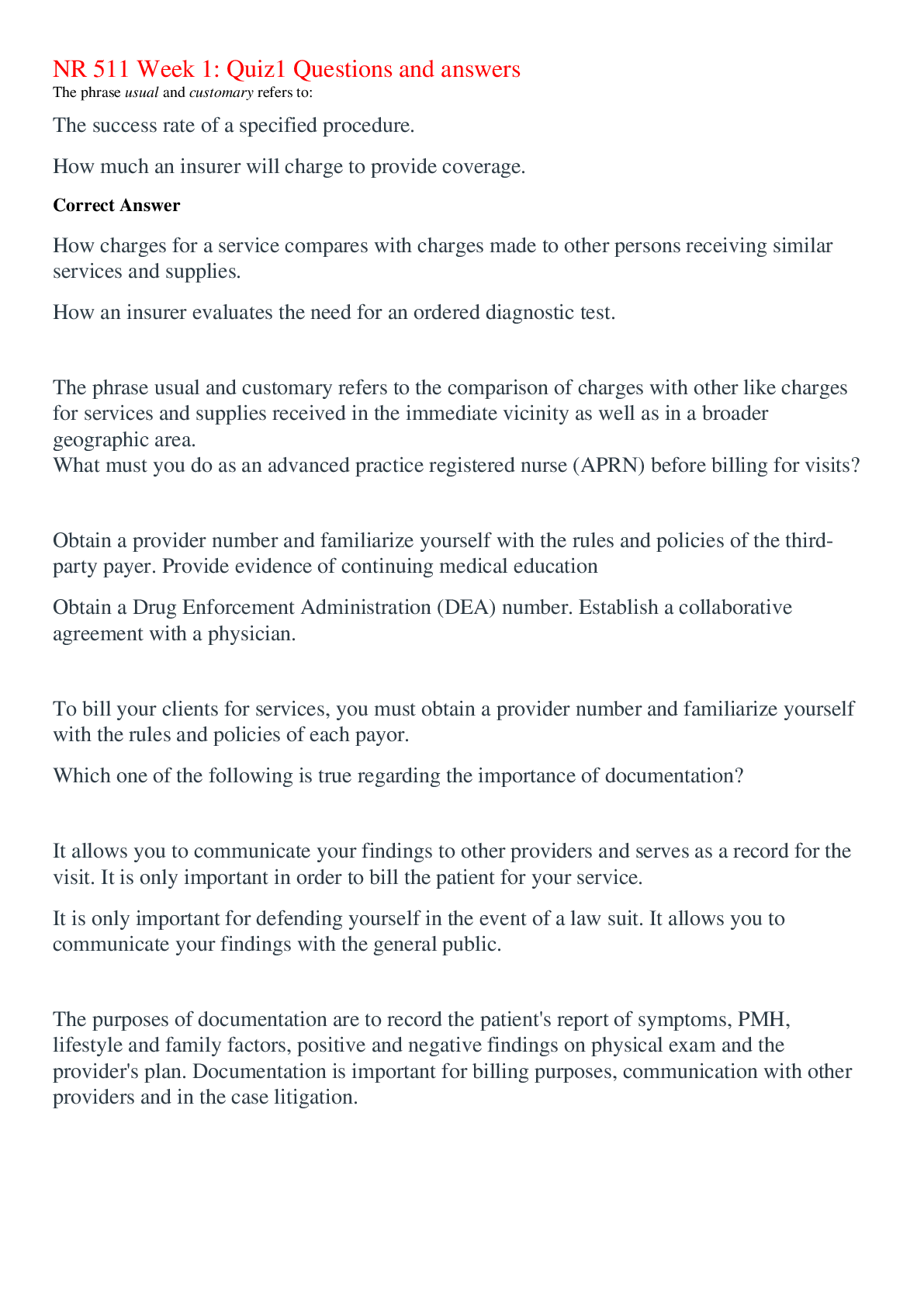
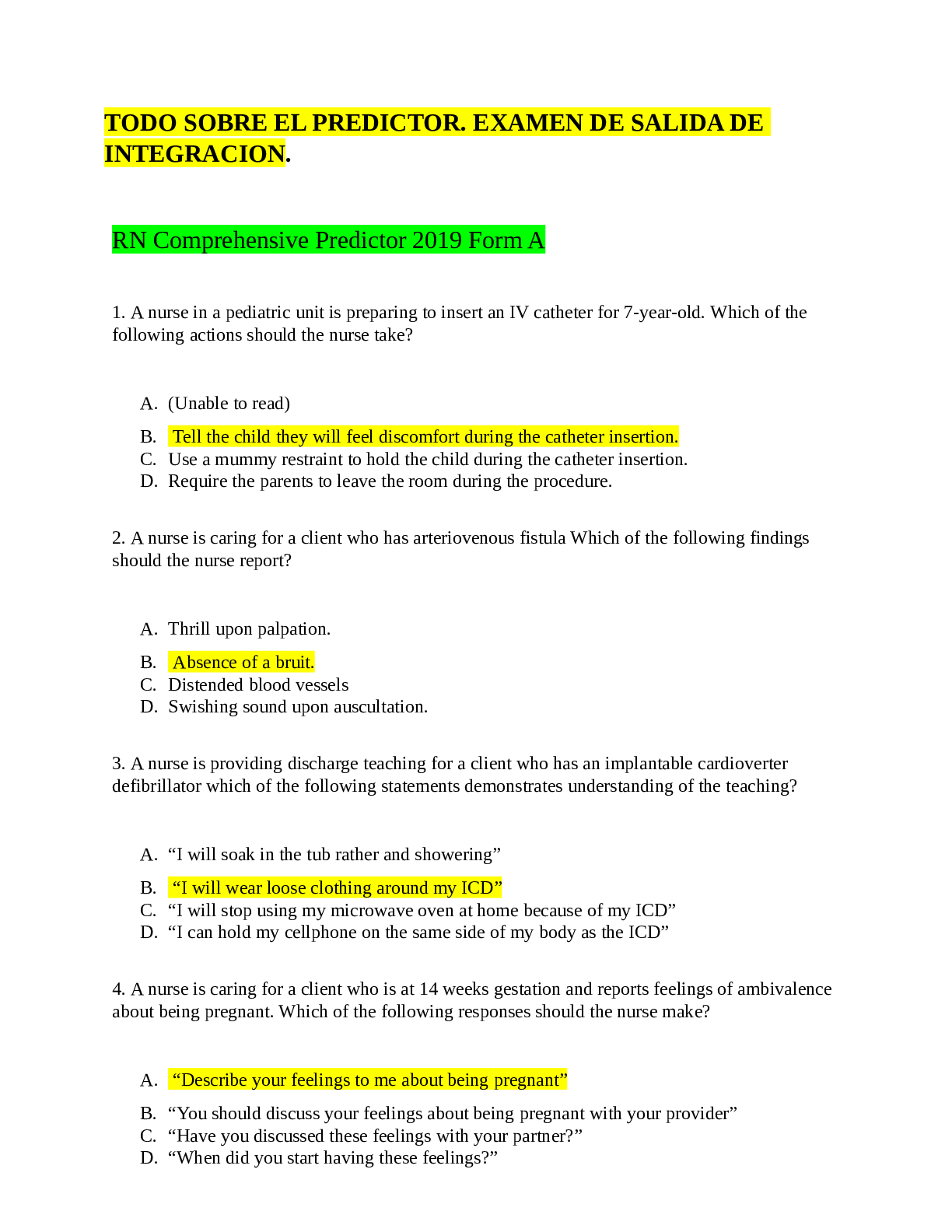
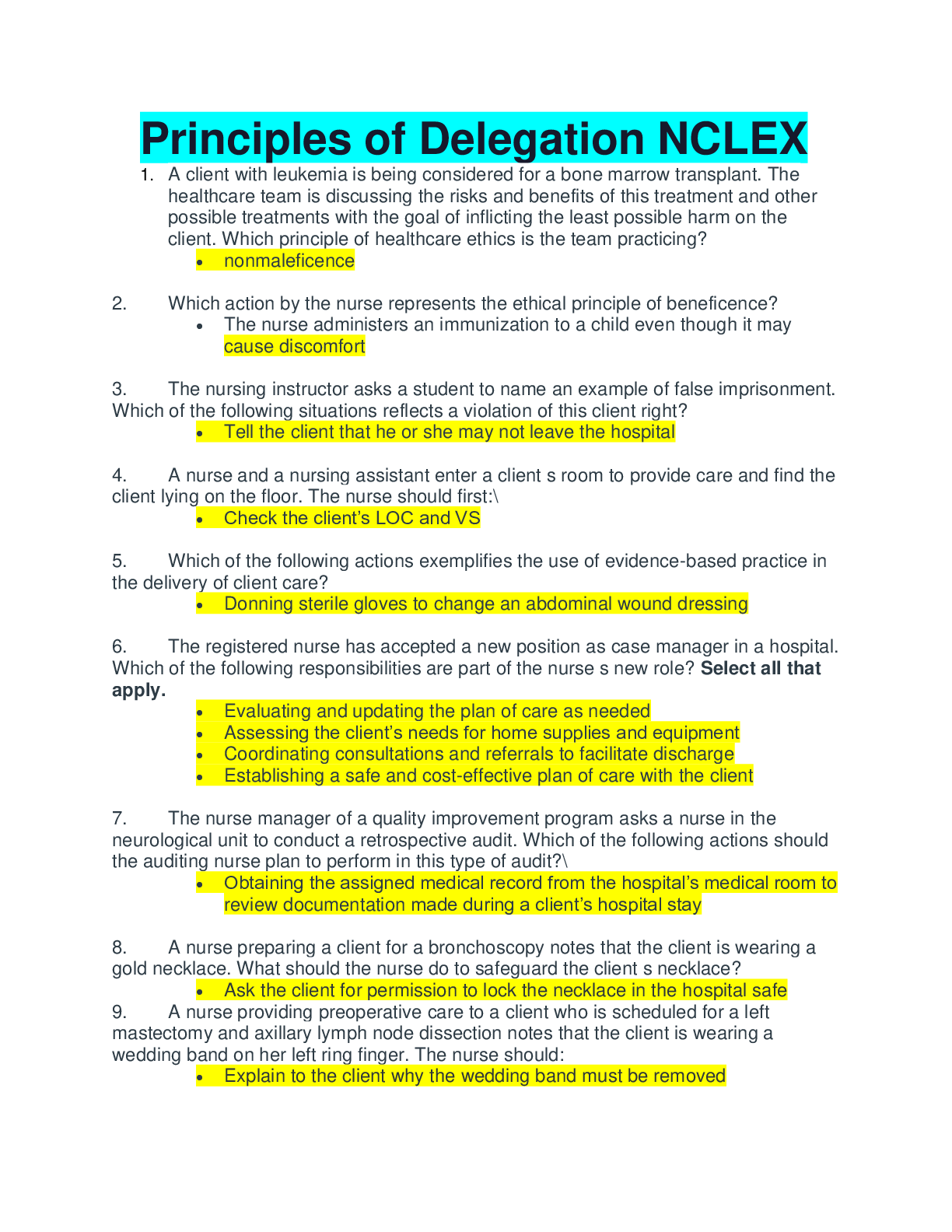
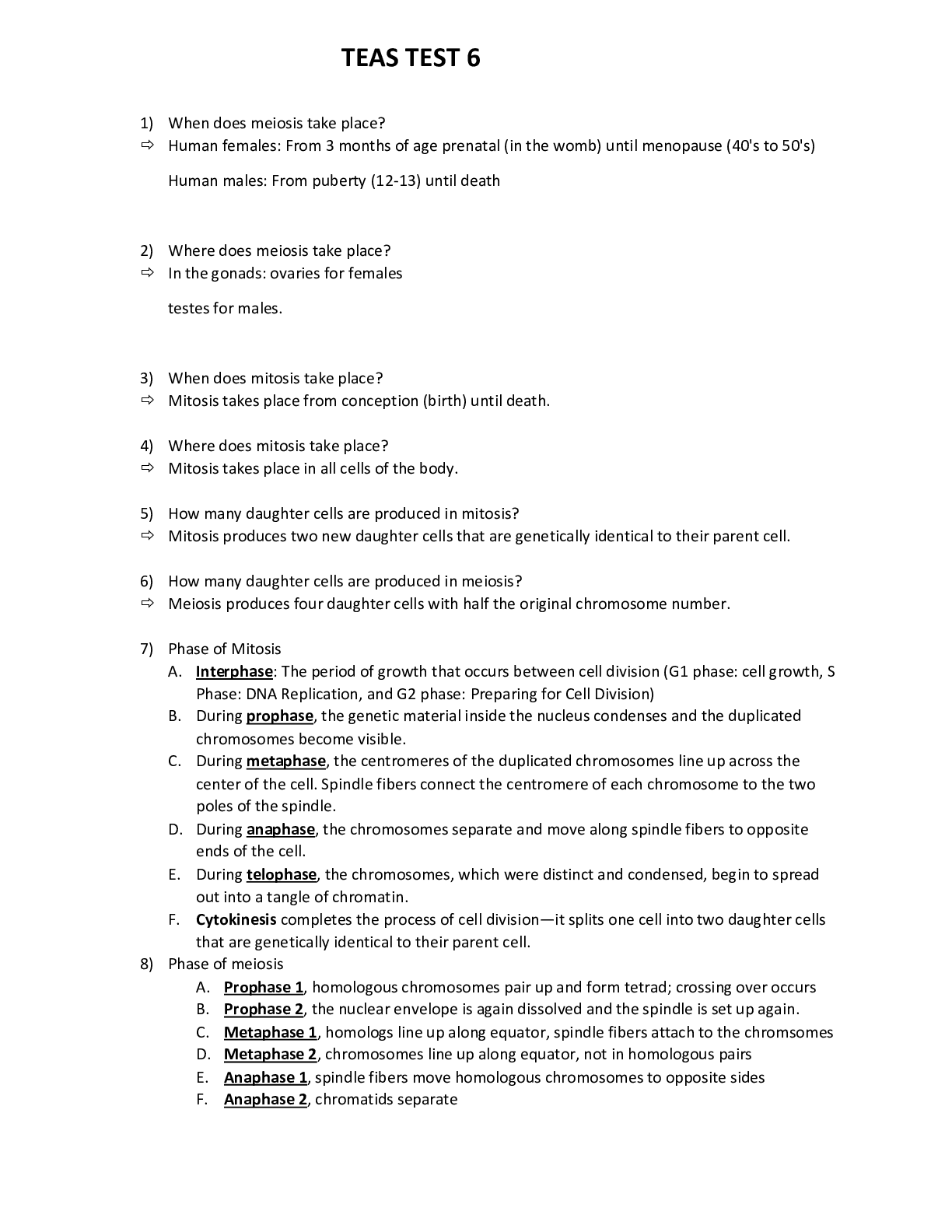
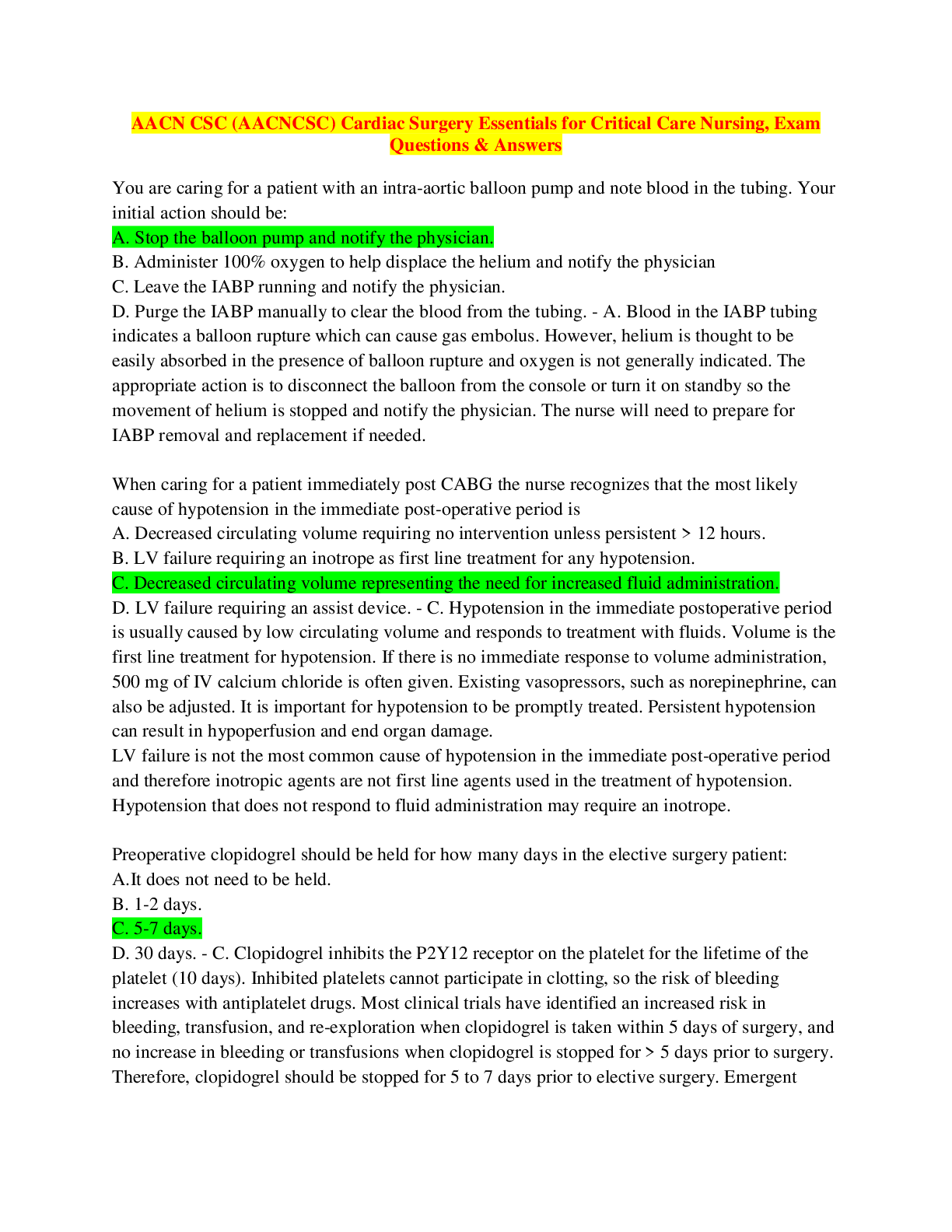
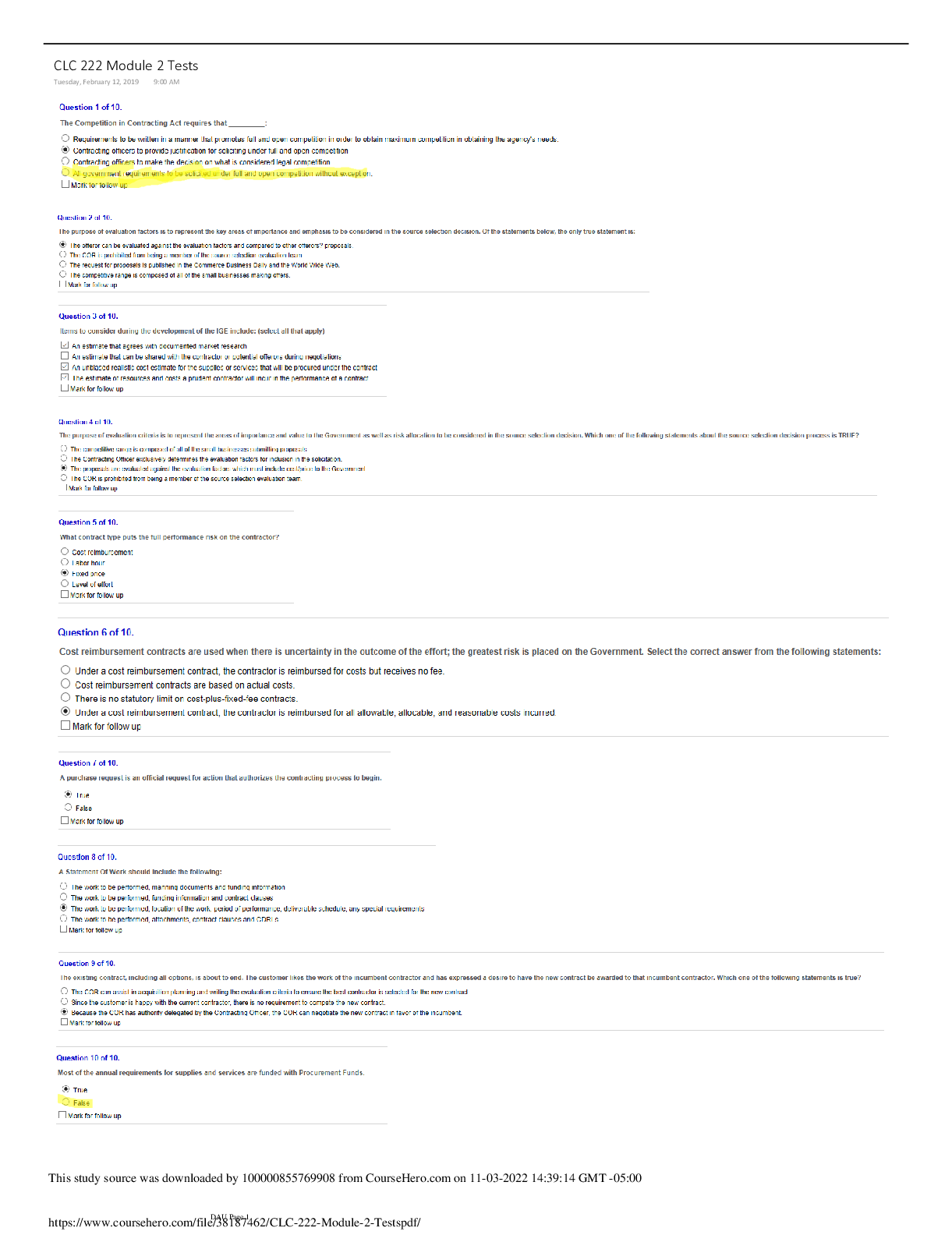

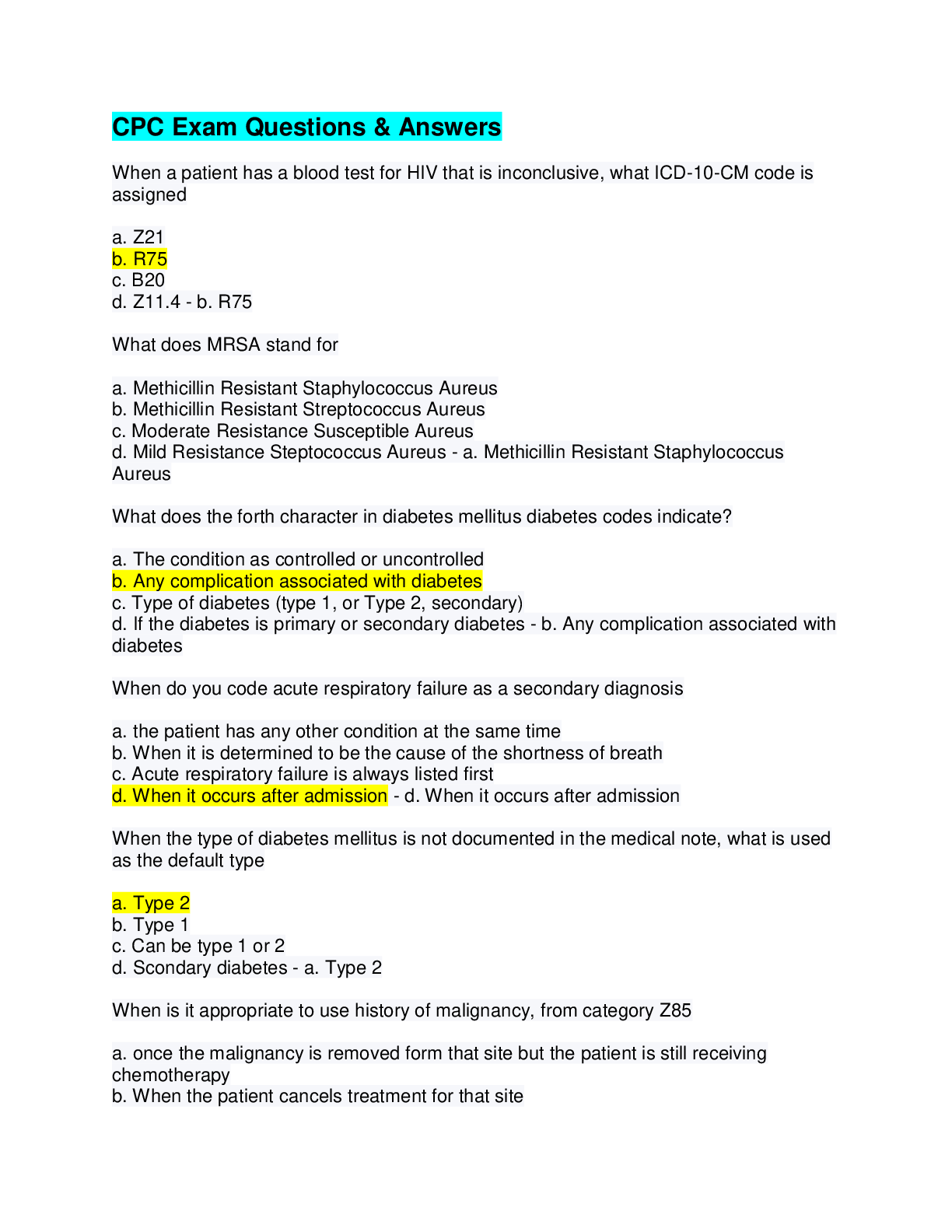
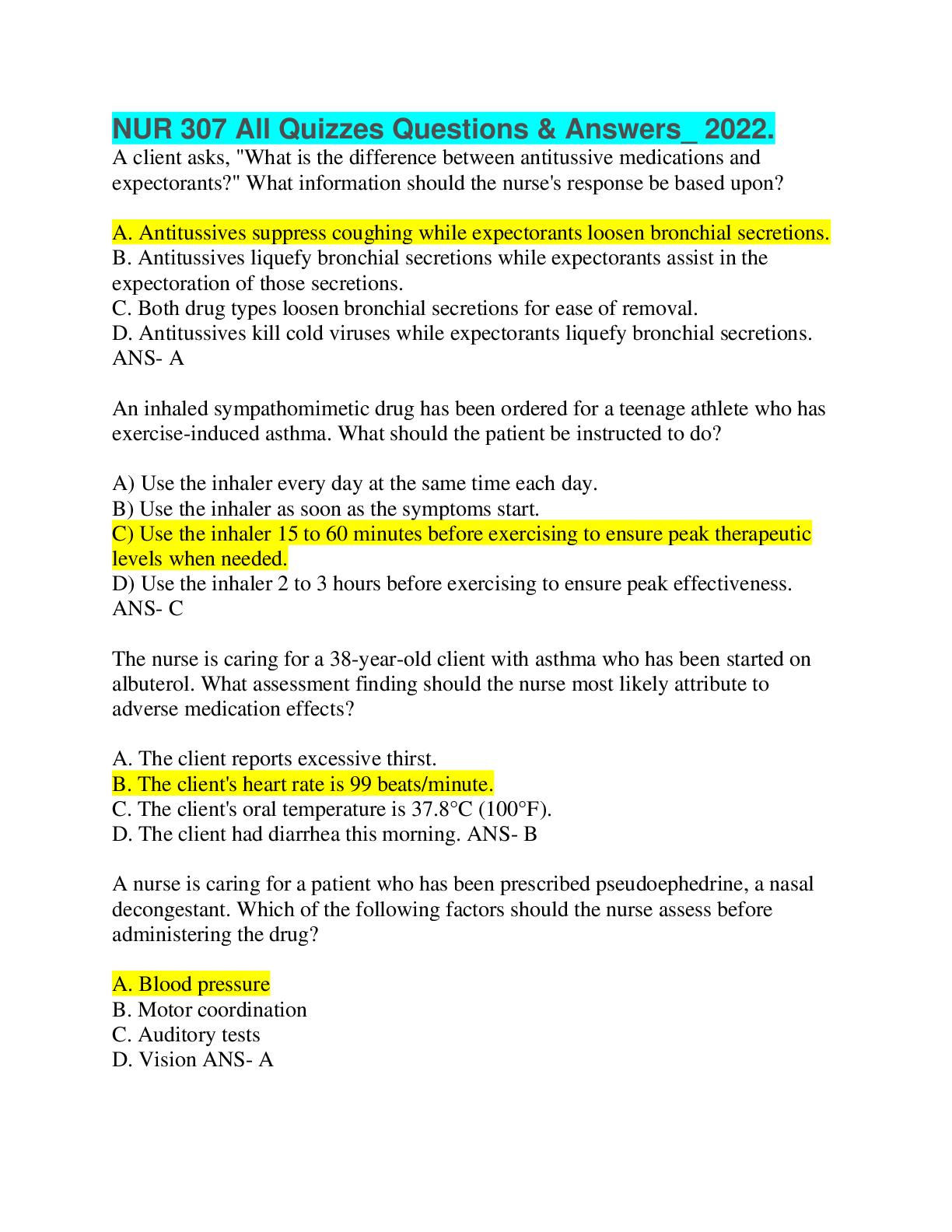
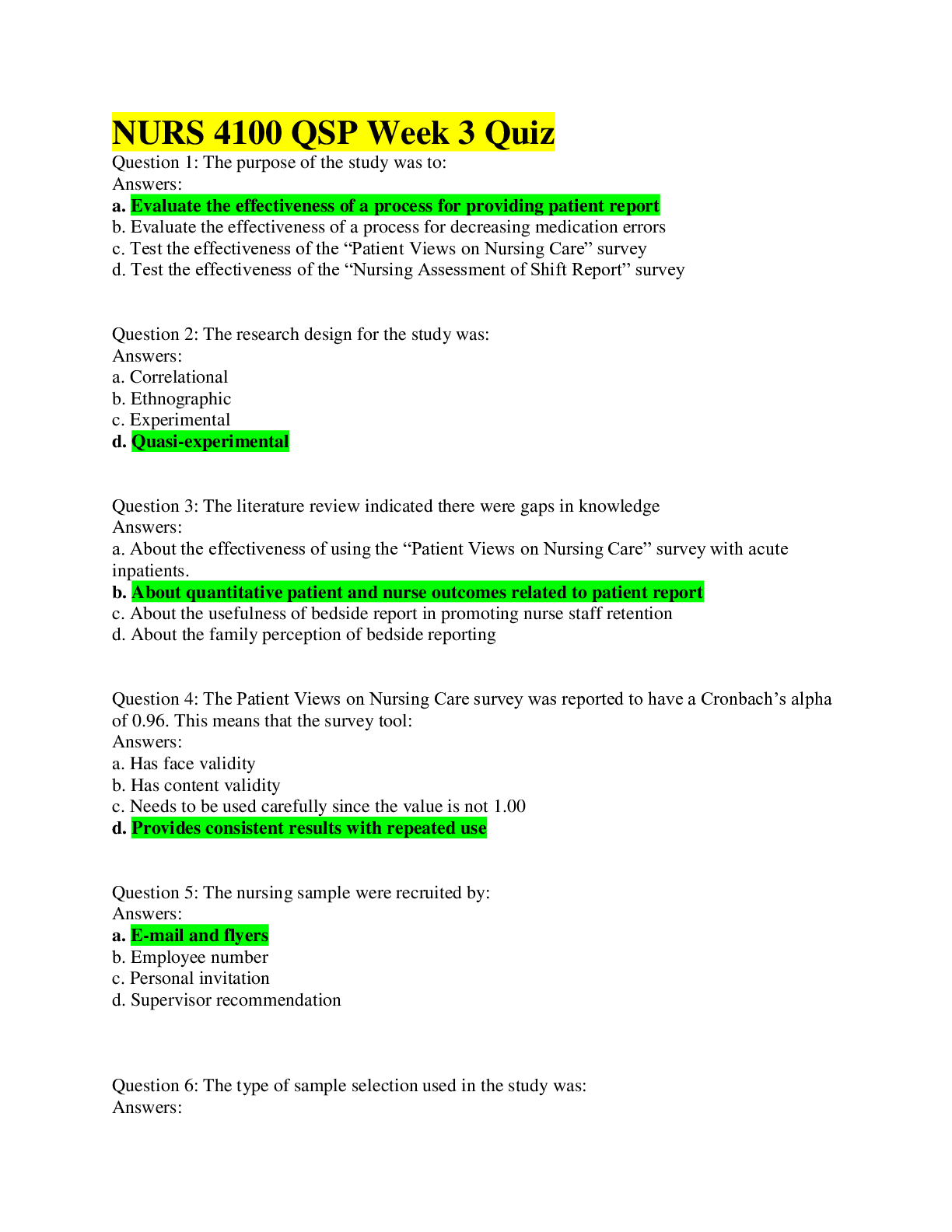
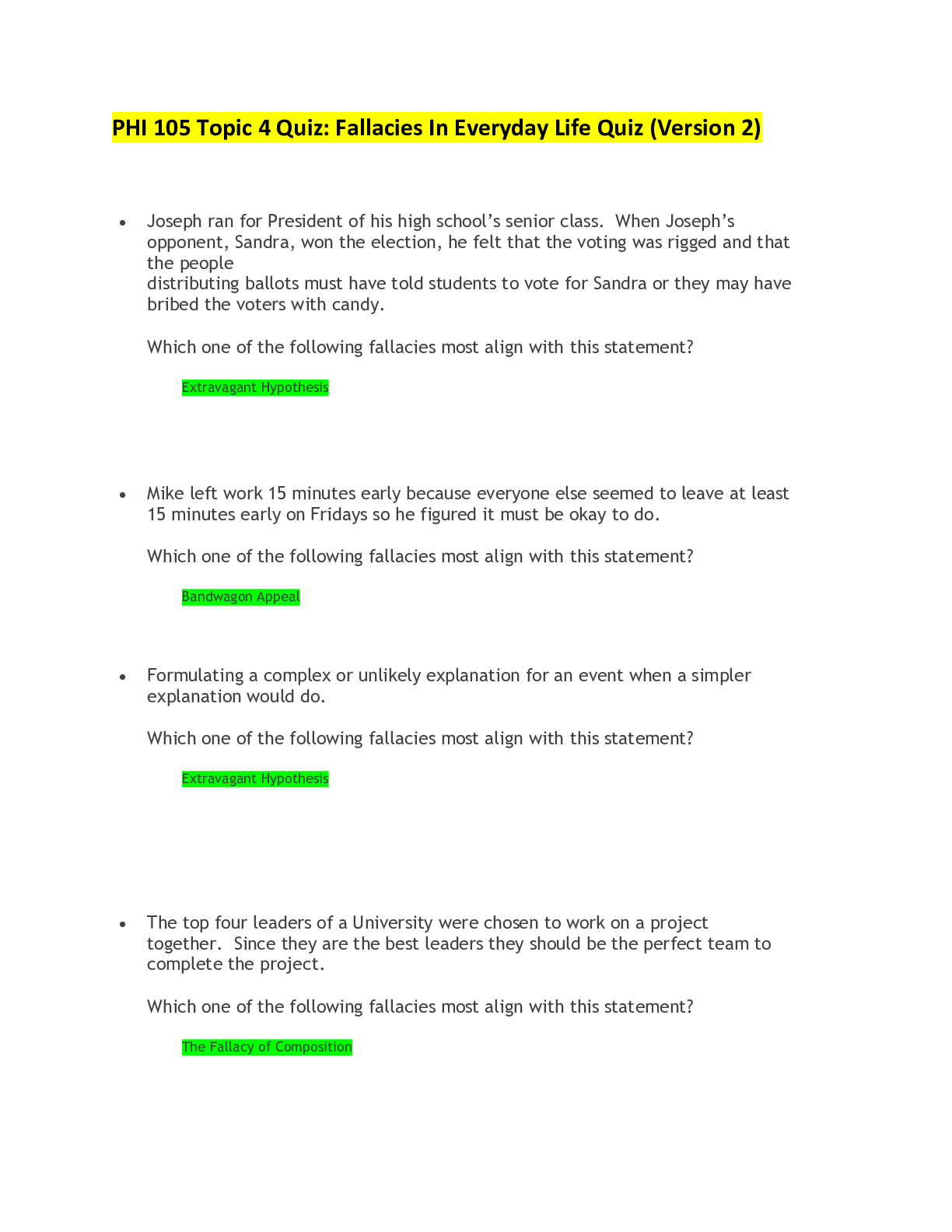
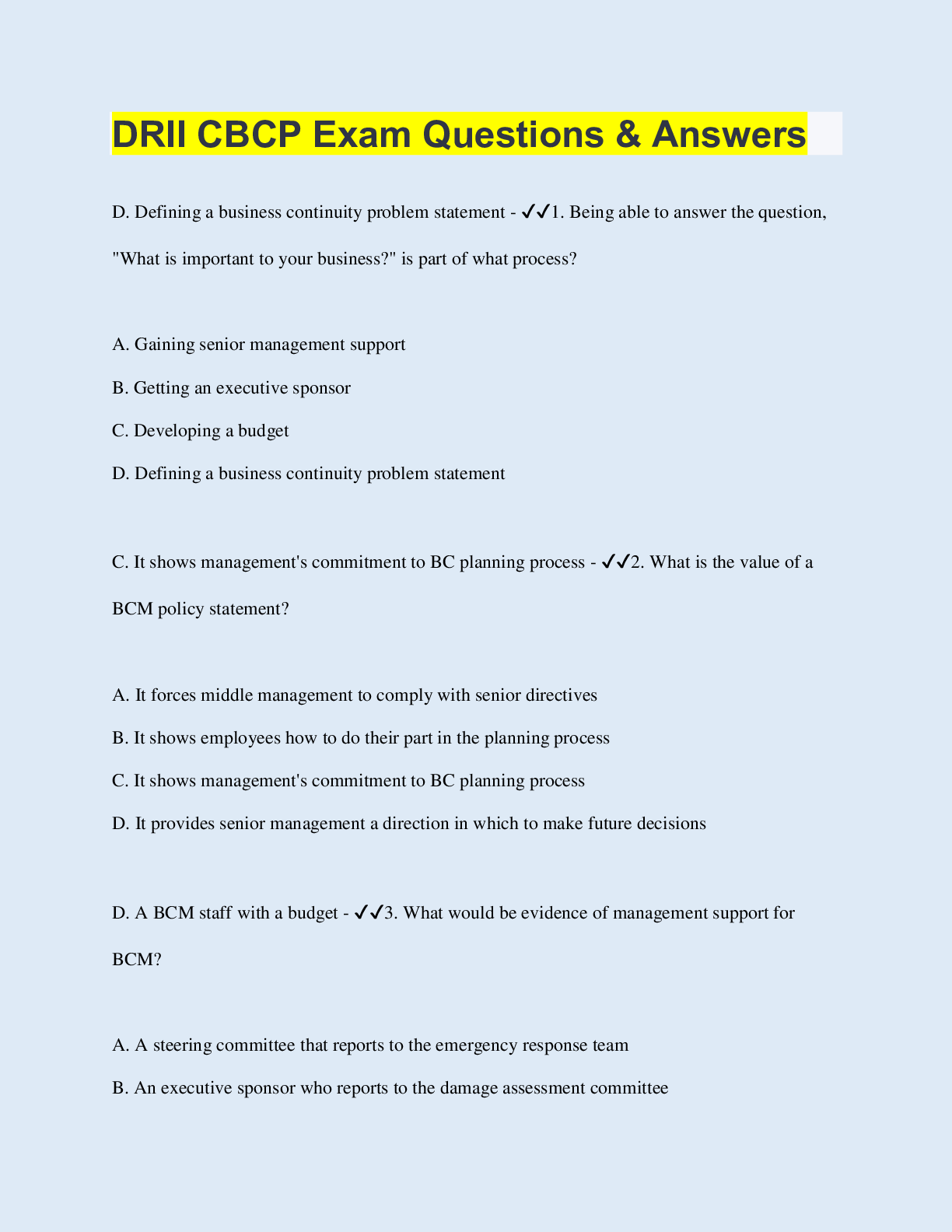
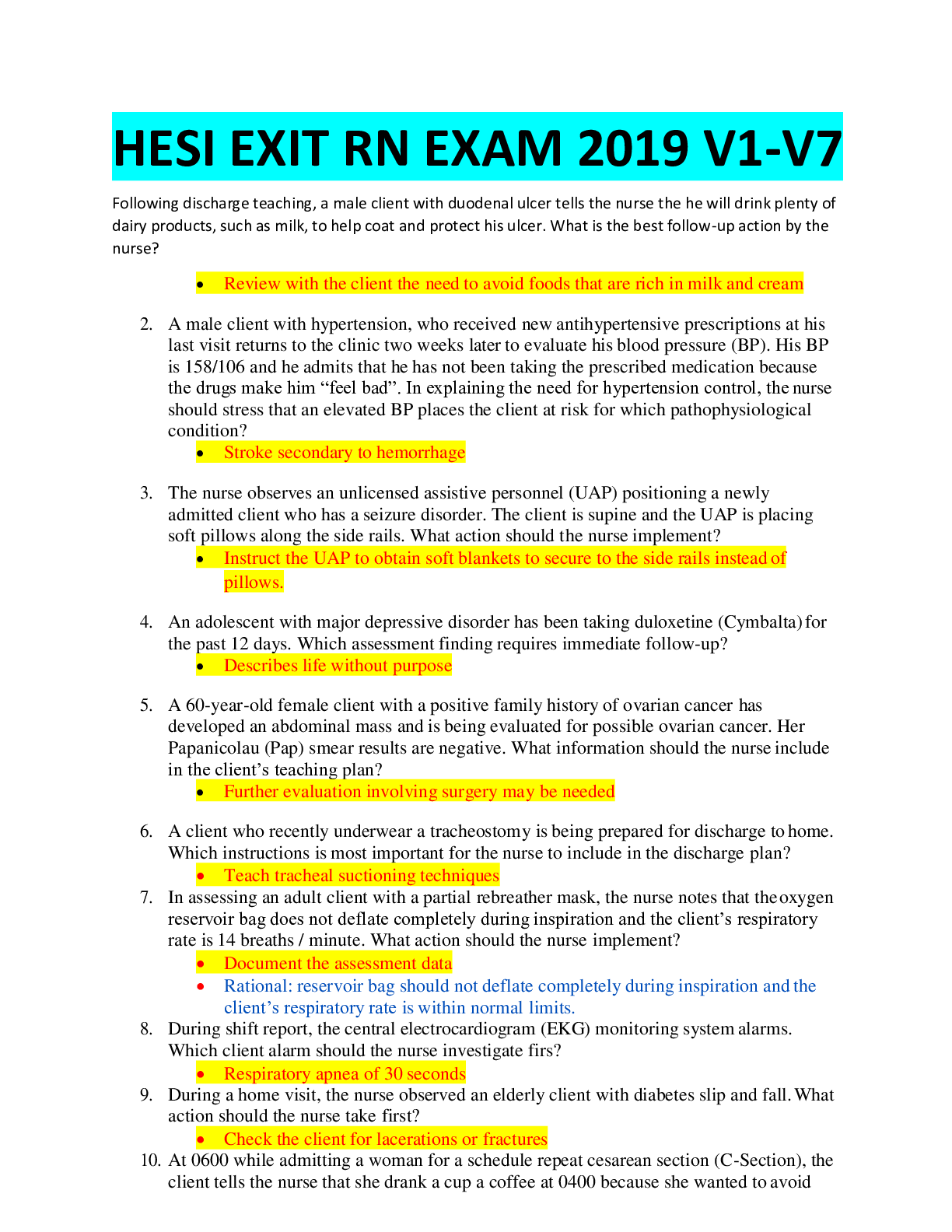
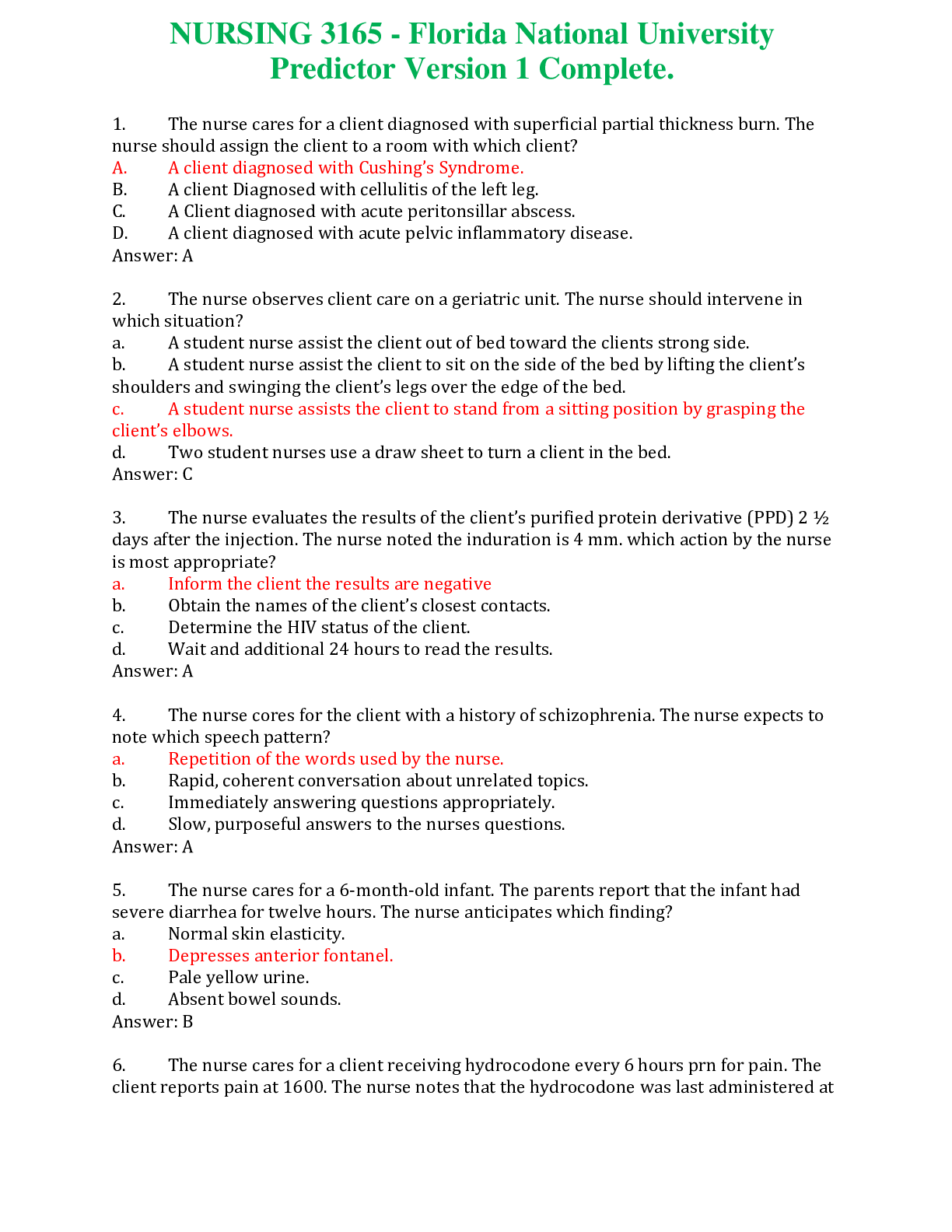
.png)




